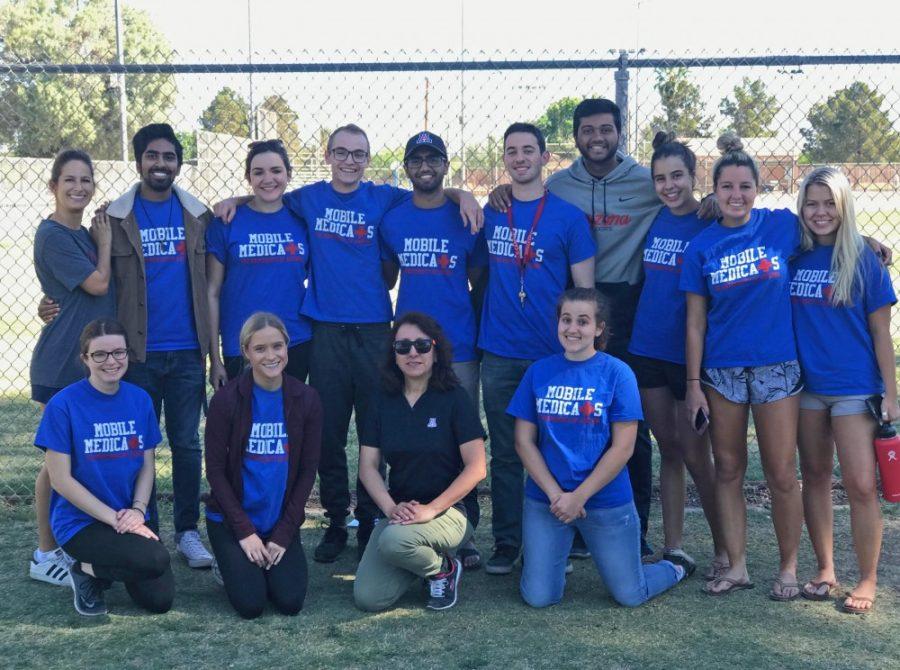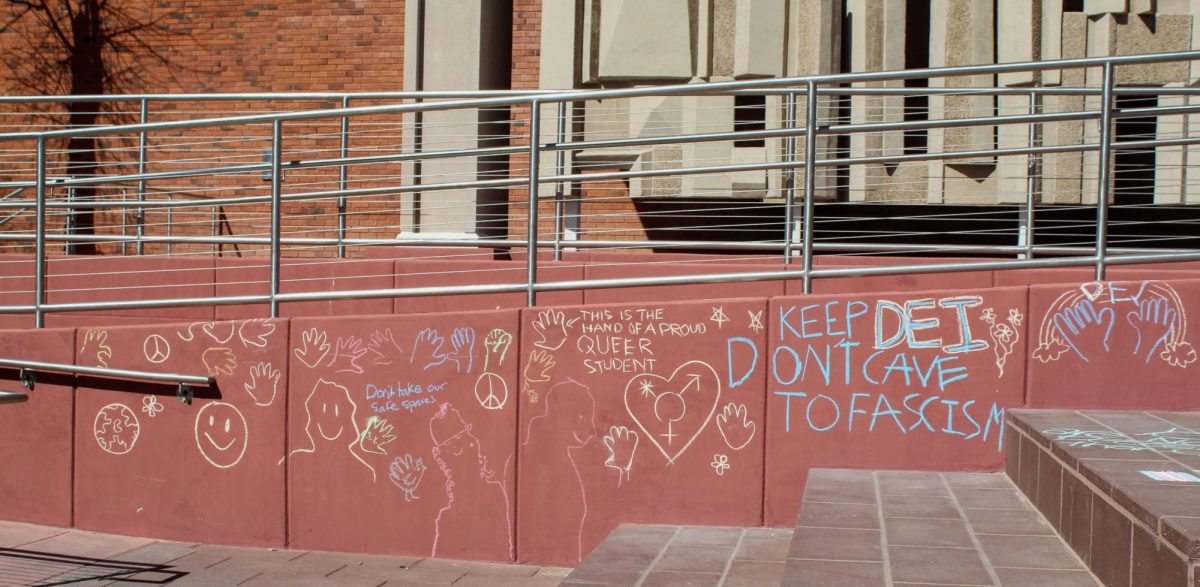Santa Rita Park is a frequent destination for the homeless population. On Saturday morning, the Mobile MediCats set out to the park with bagels and coffee in hand in order to get a better understanding of the unserved population. Dozens of homeless individuals at the park took advantage of the opportunity to receive sustenance and knowledge.
“What our goal is, is to help the Tucson homeless community,” said Lizzy Ferrara, a public health junior.
The group has visited the park several times, serving breakfast to the homeless and asking questions about their health. Ferrara, vice president of marketing for the Mobile MediCats, and other Medicat members handed out fruit, water, coffee and bagels with cream cheese.
The medical-oriented club is run by undergraduate students and overseen by Dequenesh Community Health, a nonprofit with a similar approach of mobile health clinics to help cater to the needs of the unserved medical population.
Sai Shah, a molecular & cellular biology junior and one of the co-founders of the Mobile MediCats, said the MediCats are close to having their own mobile unit up and running.
“I think helping people has always been the ultimate end game—making the best impact that we can make—but through the mobile clinic, we can do that,” Shah said. “It’s not easy, but it’ll be worth it.”
Pima County accounts for 15 percent of the state population but 16 percent of the homeless population in Arizona, according to a 2016 report from the Department of Economic Security. While the county doesn’t account for the largest homeless population in Arizona, it does have the densest population of homeless individuals in the state. However, the homeless population has been decreasing.
RELATED: UA faculty develop new pain treatment method
Andrew Good, a physiology senior and other co-founder of Mobile Medicats, made a questionnaire as a part of his thesis, in which he asks homeless individuals an array of questions pertaining to their health and their access to health insurance. The questionnaire collects information, such as their access to health care, when they last saw a doctor, whether they’d like to see one more often, transportation and medical questions pertaining to STIs, diabetes, cancer, depression, anxiety and more.
“We’ve come a long way,” Good said. “It’s been a bit of a slow process, but in the meantime, we’ve done what we can by firstly understanding the demographic of the homeless population.”
Ferrara said the Medicats were also finding a practitioner who could ride along in the exam room and see to the needs of the homeless who might not have access to health care.
One professional arrived with the Medicats to spread awareness of diabetes among the homeless.
Rosa Vogel, diabetes program coordinator at Banner, educated people the importance of knowing their status regarding the complicated disease.
“Nine out of 10 people [with diabetes] don’t even know they have prediabetes, and if that’s the case, then this is an epidemic waiting to explode,” Vogel said. “Just think about the homeless people who are here and how many of them have diabetes or prediabetes and they don’t even know it.”
RELATED: Column: Legalize charity haircuts for the homeless
Vogel said diabetes doesn’t hurt, so people may not pay immediate attention to it. Thus, she helps empower people to learn their status and learn how to care for themselves.
Banner also offers free education and classes cornering what people need to know about diabetes from learning what how to cook while living with diabetes to learning what people with the disease should be buying from the grocery store.
Ferrara said she and the other members are interested in not only helping the homeless with medical issues but any problems they can address.
“There are a lot of safety issues as well,” she said. “So we try to figure out what supplies we can bring them next semester when it starts to get a little colder—what kind of drives can we do, clothing, blankets. We are just trying to figure out how best we can help them.”
The MediCats are taking steps in that direction by building a relationship and seeing the humanity in the homeless population.
“The aim of the group is to give hope back, because yes they’re homeless but I think they feel very neglected—and they are very neglected—and I guess that’s the need we’re trying to fill,” said Good, who is graduating this semester. “Once I got to know this demographic and these people, it made me think, ‘why wouldn’t we do so much more and do as much as we could to help all the good people out here?’”
Follow David Pujol on Twitter.









